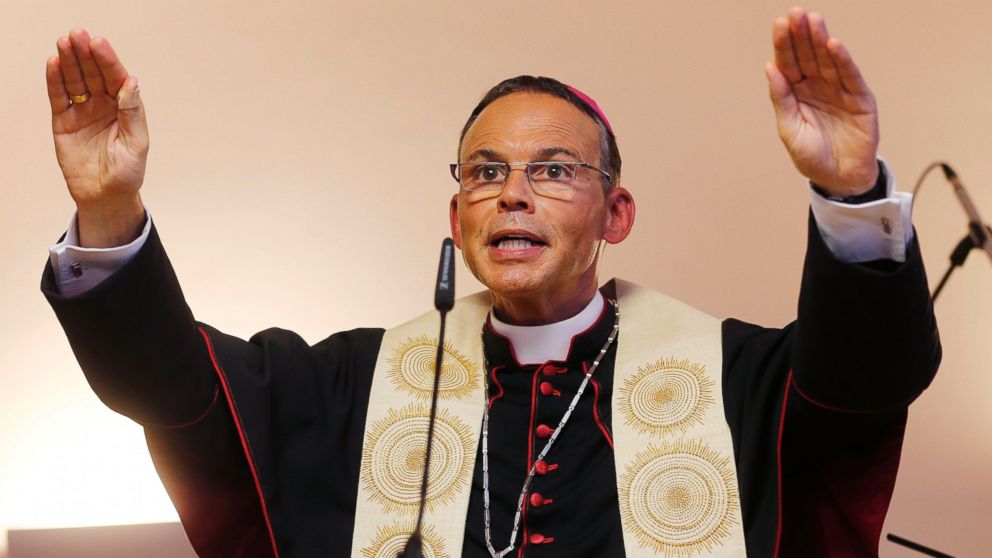Do click over to read John Piper's interview, in which he discusses why he chose to live like an 'ordinary pastor' even though he was earning so much more in book royalties and speaking fees.
| John Piper |
"When I began my ministry as pastor at Bethlehem, it had never entered my mind that I would produce a lot of income by writing. I received modest honorariums of one or two hundred dollars for weddings and funerals. I accepted these with thanks. I did believe suspect that, if I was faithful, income would rise, and sooner or later I would make more than I needed. Therefore, I believed from the beginning that plans should be in place to put a governor on laying up treasures on earth. Otherwise, little by little I might assume that my wants were my needs, and the expenses would expand, as they always do, to fill the income. So Noël and I put in place a "graduated tithe" from the beginning. That is, we tried to give a greater percentage with each salary increase, not just a greater amount.
With the successful sales of Desiring God starting in 1987, I saw that there could be substantial income from writing and speaking. I resolved that I should not keep this money for myself but channel it to ministry. I never doubted that the Lord would provide us with a salary that would be sufficient for our family. So I saw no reason to keep the money that came in from the books and speaking. These royalties and honorariums were being earned while I was pastor of Bethlehem, and so it seemed the church should benefit from them, not me privately.
At first, I thought I could do this simply by channeling the royalties to the church, but realized soon that this had tax implications. Since these royalties were technically in my control as the copyright holder, giving all of them to the church made me liable for income taxes. So we created a foundation. The Desiring God Foundation now owns all the copyrights of my books and intellectual property, and receives and distributes all the income. I have no access to the money at all. I do sit on the board of the foundation with my wife and five others. This board safeguards the aims of the foundation, and makes the decisions to which ministries the income should be given. It is a thrilling ministry.
In addition, we made the decision that all honoraria would go to the ministries we represent, not ourselves. That was usually the church while I was pastor, and now is Desiring God. While I was a pastor at Bethlehem, I never received an income from Desiring God. So for the last 25 years or so, we have lived on one stream of income. That is still the case, as I am now paid by Desiring God. I have never been in any serious need. None of this has felt like a sacrifice. I know myself incredibly rich by the standards of the world. Beyond all doubt, it is more blessed to give than to receive and keep."
In some contrast, do read these two stories of Christian leaders who have landed in trouble recently over their plans to build new houses.
 |
| Steve Furtick |
Presumably, he had made the money honestly, was entitled to being able to build this house, but was still in trouble because 1. he was not being very open about how much salary he was drawing from the church, and 2. many people felt that he was not right in keeping so much money for himself.
Read about him here, and about his defence to his church and their support of him here.
 |
| Franz Peter Tebartz-van Elst: "The Bishop of Bling" |
The second story is of a Catholic bishop (nicknamed 'The Bishop of Bling') who has been suspended after he spent 31 million Euros renovating his house in Germany.
Some writers contrasted him with Pope Francis (who took his name after Francis of Assisi)
"It is hard to imagine a greater contrast between the alleged luxurious living habits of the German bishop and the ascetic style of the Argentinian pontiff, who, from his first hours in office, has made clear his desire for "a poor church … for the poor". Shunning the large and opulent apostolic palace, the pontiff has chosen instead to live in the simple surrounds of the Domus Sanctae Marthae, a Vatican guesthouse. He often travels in used cars and has urged priests to do the same, telling them: "If you like the fancy one, just think about how many children are dying of hunger in the world."
So, here's the question:
Why is it particularly wrong for a Pastor to earn well, save well, and live well ? Why do we expect that they should live lives of poverty, (or, at least, they should not live more extravagantly than we do!)
What about the, say, Christian doctor, or IT professional, or teacher, or banker or lawyer?
Is what is bad for the pastor good for the rest of us?
Possibly related posts from the past:
2. Some thoughts on Giving (and the Tithe)
3. God's way of making us a part of His Kingdom
No comments:
Post a Comment